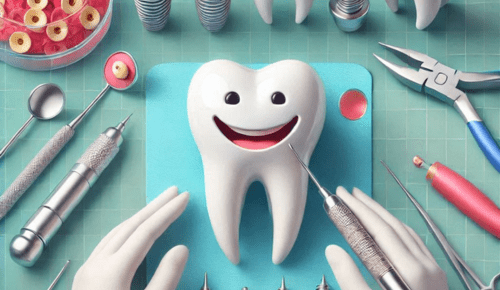
If you’re one of the many individuals who have invested in dental implants to restore your smile, congratulations! Dental implants can greatly improve the appearance and function of your teeth, boosting your confidence and overall quality of life. However, to ensure the long-term success and longevity of your dental implants, it’s essential to follow a consistent oral hygiene routine and attend regular check-ups with your dentist.
In this article, we’ll provide a comprehensive guide on how to care for your NE Philly dental implants, including tips on brushing, flossing, and maintaining a healthy diet to keep your implants looking and feeling their best.
Understanding Dental Implants
Dental implants are artificial tooth roots made of titanium or other materials that are surgically inserted into the jawbone to support a prosthetic tooth or teeth. Designed to mimic the natural structure and function of a tooth, dental implants consist of three main components: the implant itself, an abutment that connects the implant to the prosthetic tooth, and the prosthetic tooth or crown. By integrating with the surrounding bone and tissue, dental implants provide a stable, secure, and long-lasting solution for replacing missing teeth, restoring chewing function, and enhancing the overall appearance of the smile.
Importance of Proper Care
Dental implants are designed to integrate with the surrounding bone and tissue, providing a stable and secure foundation for your new teeth. However, without proper care, dental implants can be susceptible to complications such as:
- Peri-implantitis (inflammation of the tissue surrounding the implant)
- Implant failure
- Bone loss
- Gum recession
By following the guidelines outlined in this article, you can help prevent these complications and ensure the long-term success of your dental implants.
Oral Hygiene Routine
A consistent oral hygiene routine is crucial for maintaining the health and longevity of your dental implants. Here are some tips to follow:
- Brushing: Brush your dental implants at least twice a day using a soft-bristled toothbrush and a gentle toothpaste. Pay special attention to the areas around the implant, where plaque and bacteria can accumulate.
- Flossing: Flossing is essential for removing plaque and bacteria from between your teeth and around your dental implants. Use a gentle flossing motion to avoid damaging the implant or surrounding tissue.
- Interdental Brushes: Interdental brushes are small, cone-shaped brushes that can be used to clean between your teeth and around your dental implants. They are especially useful for reaching areas that are difficult to access with a regular toothbrush.
- Antimicrobial Mouthwash: Using an antimicrobial mouthwash can help reduce the risk of peri-implantitis and other complications. Look for a mouthwash that contains ingredients such as chlorhexidine or essential oils.
Additional Tips
In addition to maintaining a consistent oral hygiene routine, here are some additional tips to help you care for your dental implants:
- Avoid Hard or Sticky Foods: Avoid eating hard or sticky foods, such as candy or nuts, which can damage your dental implants or surrounding tissue.
- Don’t Smoke: Smoking can increase the risk of peri-implantitis and other complications. Quitting smoking can help ensure the long-term success of your dental implants.
- Attend Regular Check-Ups: Regular check-ups with your dentist are essential for monitoring the health and longevity of your dental implants. Your dentist can check for signs of complications and provide personalized advice on how to care for your implants.
- Clean Your Implant-Supported Prosthesis: If you have an implant-supported prosthesis, such as a crown or bridge, make sure to clean it regularly using a soft-bristled toothbrush and gentle toothpaste.
Takeaway
Caring for your dental implants requires a consistent oral hygiene routine and regular check-ups with your dentist. By following the guidelines outlined in this article, you can help ensure the long-term success and longevity of your dental implants. Remember to brush and floss regularly, avoid hard or sticky foods, and attend regular check-ups with your dentist. With proper care and maintenance, your dental implants can provide a natural-looking and functional smile for many years to come.
